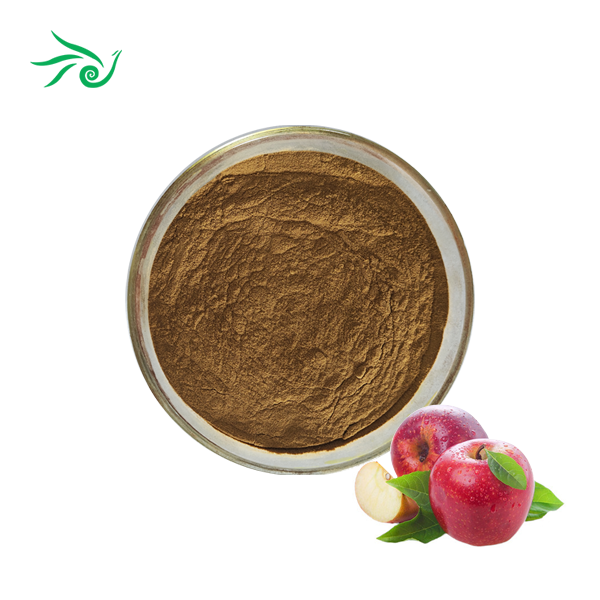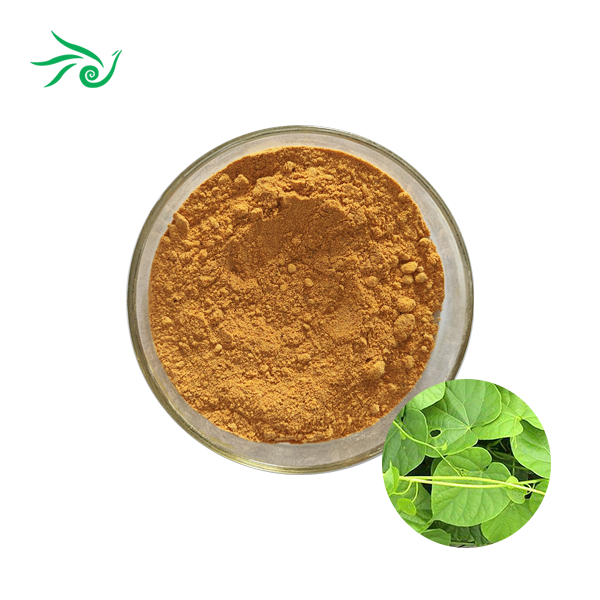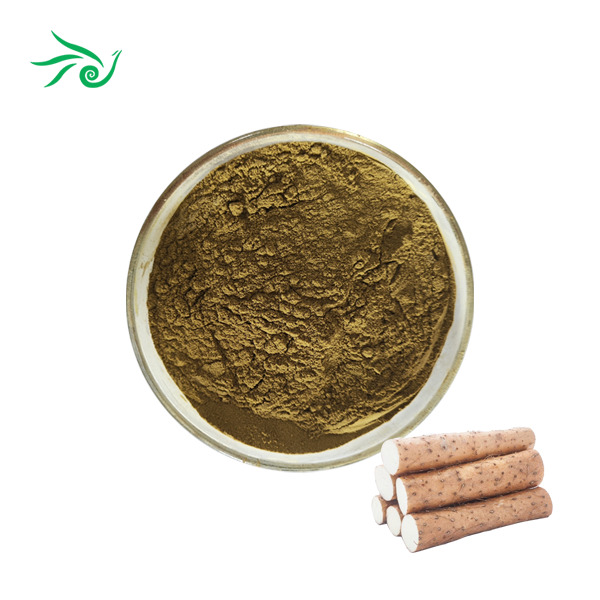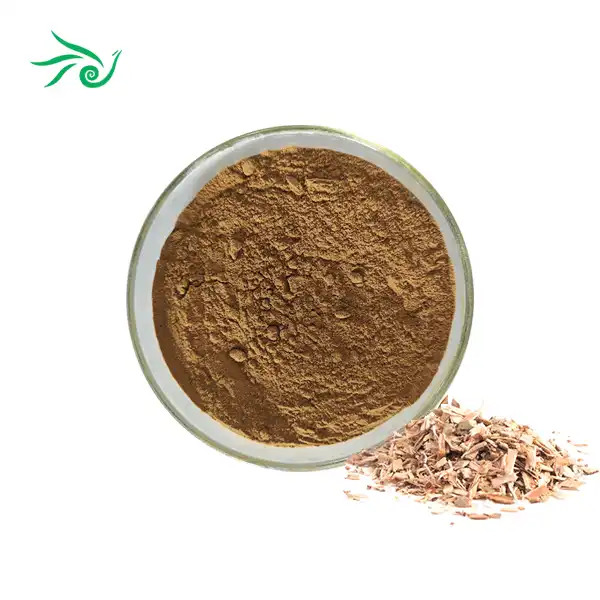Is Epilobium Parviflorum Extract Safe for Everyone?
2024-10-14 11:38:33
Epilobium parviflorum, usually known as smallflower bushy willowherb, has acquired consideration lately for its potential medical advantages. It is essential to comprehend the safety profile of herbal extracts like Epilobium parviflorum extract as an increasing number of people turn to natural remedies. This article dives into the security contemplations, expected advantages, and safety measures related with this herbal concentrate.
Understanding Epilobium Parviflorum Extract
What is Epilobium Parviflorum?
Epilobium parviflorum is a lasting spice having a place with the Onagraceae family. It's local to Europe, North Africa, and portions of Asia yet has naturalized in numerous different areas. The plant's lance-shaped leaves and small, pale pink flowers set it apart. Traditionally, various parts of the plant have been used in folk medicine for their purported therapeutic properties.
Extraction Process and Active Compounds
The concentrate is ordinarily gotten from the flying pieces of the plant, including leaves, stems, and blossoms. The extraction cycle generally includes solvents like water or liquor to focus the bioactive mixtures. Epilobium parviflorum extract contains a few phytochemicals, including flavonoids, tannins, and sterols. Oenothein B, a macrocyclic ellagitannin, is considered one of the primary active constituents responsible for its biological effects.
Traditional and Modern Uses
Historically, Epilobium parviflorum has been employed in traditional medicine systems for various purposes, including urinary tract health and prostate support. In contemporary home grown medication, the concentrate is being researched for its potential mitigating, cancer prevention agent, and hormonal adjusting properties. A few examinations propose it might have applications in overseeing harmless prostatic hyperplasia (BPH) and supporting by and large urological wellbeing.
Safety Profile of Epilobium Parviflorum Extract
General Safety Considerations
While Epilobium parviflorum extract is generally considered safe for most adults when used as directed, it's essential to approach any herbal supplement with caution. The safety profile of this extract is based on its long history of traditional use and limited scientific studies. However, comprehensive long-term safety data from clinical trials are still lacking.
Potential Side Effects
Most users of Epilobium parviflorum extract report minimal to no side effects. However, some individuals may experience mild gastrointestinal discomfort, such as nausea or stomach upset, particularly when the extract is taken in high doses or on an empty stomach. In rare cases, allergic reactions may occur, especially in individuals with sensitivities to plants in the Onagraceae family.
Interactions with Medications
As with many herbal supplements, it may interact with certain medications. Due to its potential to alter hormonal balance, the extract may interact with hormone-based treatments or medications. Additionally, its claimed anti-inflammatory properties may interact with NSAIDs or blood thinners. Individuals taking any prescription medications should consult their healthcare provider before incorporating this extract into their regimen.
Who Should Exercise Caution with Epilobium Parviflorum Extract?
Pregnant and Breastfeeding Women
Due to the lack of comprehensive safety data, pregnant and breastfeeding women are advised to avoid Epilobium parviflorum extract. The potential hormonal effects of the extract raise concerns about its safety during pregnancy and lactation. Until more research is conducted, it's prudent for these groups to err on the side of caution and avoid use.
Individuals with Hormone-Sensitive Conditions
Endometriosis, certain types of cancer (such as breast, ovarian, or prostate cancer), and hormone-sensitive conditions like uterine fibroids should exercise caution. The phytoestrogenic properties of certain mixtures in Epilobium parviflorum extract could impact chemical levels, possibly influencing these circumstances. Counsel with a medical care proficient is vital for people with these wellbeing concerns.
Those with Liver or Kidney Conditions
Individuals with pre-existing liver or kidney conditions should approach Epilobium parviflorum extract with caution. These organs assume significant parts in using and taking out compounds from the body. Although there is no direct evidence of hepatotoxicity or nephrotoxicity associated with this extract, individuals with compromised liver or kidney function should proceed with caution due to the lack of extensive safety studies.
Potential Benefits and Research Findings
Prostate Health Support
One of the most researched applications of Epilobium parviflorum extract is its potential to support prostate health. A few examinations affect harmless prostatic hyperplasia (BPH), a typical condition in maturing men. The extract's mitigating and cell reinforcement properties might assist with reducing side effects related with BPH, like incessant pee and urinary uneasiness. However, more extensive clinical trials are needed to confirm these benefits definitively.
Antioxidant and Anti-Inflammatory Effects
Research has shown that Epilobium parviflorum extract has huge cancer prevention agent action. The flavonoids and polyphenols present in the concentrate can kill free extremists, possibly lessening oxidative pressure in the body. Along with its mitigating properties, this cell reinforcement activity might assist with keeping up with cell wellbeing overall and safeguard against oxidative harm and constant infections.
Urinary Tract Health
Traditional use of Epilobium parviflorum for urinary tract health has prompted scientific investigation into its potential benefits for urological conditions. A few examinations propose that the concentrate might assist with mitigating bothered urinary plot tissues and backing solid urinary capability. Its gentle diuretic impact and antimicrobial properties could add to keeping up with urinary parcel wellbeing, however more exploration is expected to lay out its adequacy around here.
Dosage and Administration Considerations
Recommended Dosages
The optimal dosage of Epilobium parviflorum extract can vary depending on the specific product and intended use. Generally, dosages range from 250 to 500 mg of standardized extract taken once or twice daily. However, it's crucial to follow the manufacturer's recommendations or consult with a healthcare professional for personalized dosage advice. Starting with a lower dose and gradually increasing it can help monitor individual tolerance and response.
Forms of Administration
Epilobium parviflorum extract is available in various forms, including capsules, tablets, tinctures, and teas. Capsules and tablets offer convenience and precise dosing, while tinctures allow for flexible dosing and rapid absorption. Teas made from the dried herb provide a more traditional approach but may have lower concentrations of active compounds. The choice of form often depends on personal preference and the specific health goals.
Timing and Duration of Use
The timing of Epilobium parviflorum extract consumption can influence its effectiveness and tolerability. Some practitioners recommend taking it with meals to minimize potential gastrointestinal discomfort. For prostate health support, consistent long-term use may be necessary to observe benefits. However, it's advisable to periodically reassess the need for continued use and consult with a healthcare provider, especially if taking the extract for extended periods.
Quality and Sourcing Considerations
Importance of Product Quality
The safety and efficacy of Epilobium parviflorum extract heavily depend on the quality of the product. High-quality extracts are produced from properly identified and authenticated plant material, using standardized extraction methods to ensure consistent potency. Reputable manufacturers employ quality control measures throughout the production process, from harvesting to packaging, to maintain the extract's purity and potency.
Standardization and Potency
Standardized extracts offer greater consistency in active compound content, allowing for more predictable effects. Look for products that specify the concentration of key compounds, such as oenothein B or total polyphenols. Standardization helps ensure that each dose contains a consistent amount of the extract's bioactive components, which is crucial for both safety and efficacy.
Third-Party Testing and Certifications
To further ensure product quality and safety, consider choosing Epilobium parviflorum extracts that have undergone third-party testing. Independent laboratory analysis can verify the extract's purity, potency, and absence of contaminants such as heavy metals or microbial organisms. Certifications from reputable organizations can provide additional assurance of quality and adherence to good manufacturing practices.
Conclusion
Epilobium parviflorum extract offers promising potential benefits, particularly for prostate and urinary tract health. While generally considered safe for most adults, it's not without risks and may not be suitable for everyone. Pregnant women, those with hormone-sensitive conditions, and individuals on certain medications should exercise caution. As with any supplement, it's crucial to consult with a healthcare professional before incorporating it into your health regimen. By carefully considering individual health status, potential interactions, and quality of the product, one can make an informed decision about its use.
Contact Us
Interested in learning more about it and its potential applications? Contact Shaanxi Huachen Biotech Co., Ltd. for expert advice and high-quality products. Reach out to us at dongqian@sxhcbio.com for more information on our Epilobium Parviflorum Extract and other botanical extracts.
References
Granica, S., et al. (2014). Phytochemistry and bioactivity of Epilobium species. Phytochemistry Reviews, 13(2), 391-416.
Vitalone, A., & Allkanjari, O. (2018). Epilobium spp: Pharmacology and phytochemistry. Phytotherapy Research, 32(7), 1229-1240.
Hevesi, B. T., et al. (2009). Antioxidant and anti-inflammatory effects in RAW264.7 macrophages of malvidin, a major red wine polyphenol. PLoS ONE, 4(7), e6202.
Schepetkin, I. A., et al. (2016). Therapeutic potential of polyphenols from Epilobium angustifolium (Fireweed). Phytotherapy Research, 30(8), 1287-1297.
Stolarczyk, M., et al. (2013). Extracts from Epilobium sp. herbs, their components and gut microbiota metabolites of Epilobium ellagitannins, urolithins, inhibit hormone-dependent prostate cancer cells-(LNCaP) proliferation and PSA secretion. Phytotherapy Research, 27(12), 1842-1848.
Coulson, S., et al. (2013). A phase II randomised double-blind placebo-controlled clinical trial investigating the efficacy and safety of ProstateEZE Max: A herbal medicine preparation for the management of symptoms of benign prostatic hypertrophy. Complementary Therapies in Medicine, 21(3), 172-179.
Send Inquiry
.webp)





